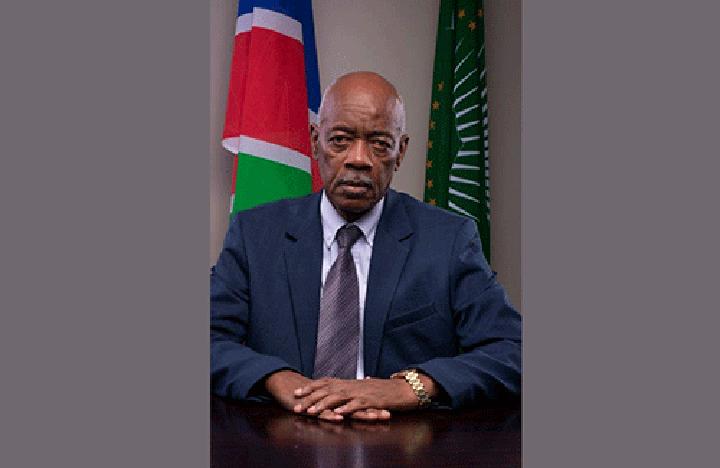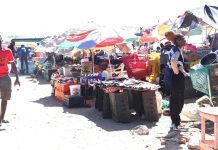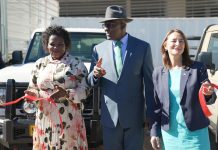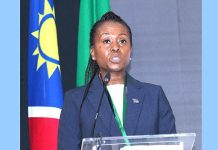Africa-Press – Namibia. The national question is a term used in socialist thought for a variety of issues related to nationalism. It is basically about striking the right balance so that each ethnic group can exercise its right to self-determination, social development and cultural rights.
The attainment of independence in 1990 culminated in our statehood and nationhood hence the notion of Namibia as a nation-state. We have created a sovereign state with all the characteristics of a modern state; the burning question, however, is have we, at the same time also created a nation with a truly national identity or not? The Preamble to the Namibian Constitution, inter alia, states that we “…will strive to foster peace, unity and a common loyalty to a single state.”
This is a bold political statement, but it is at best just a theoretical declaration whose bearing on society is yet to be empirically certified.
Many Namibians proceed on the delusionary assumption that the national question was resolved with political independence in 1990. There are different ethnic groups inhabiting the area of geography called Namibia. However, there are not “Namibians” – with distinctively ‘Namibian’ cultural traits – in the same sense as there are “Italians” or “French.”
Namibia seems to be a mere geographical expression. Indisputably, since it gained political independence in 1990, Namibia has had requisite characteristics of a state name, a defined territory, national anthem, national flag, recognition as an international person etc. However, there is clear absence of a strong feeling of affinity among the diverse ethnic groups within the country. Numerous independent kingdoms and nations existed before the idea of a Namibian state was conceived by the German colonialists to foster the national interests of Germany. When Apartheid South Africa took over the administration of the territory after the First World War, they introduced the apartheid policy of divide and rule; which contributed to further fragmentation along racial and ethnic lines.
In Namibia, national identity is still very elusive; and because of our recent colonial history, we tend to shy away from discussing race and ethnicity. I want to cite a few examples to back up my argument. The secessionist attempt in the then Caprivi region in 1999 (which I do not support), the dramatic change of the political landscape in favour of the Landless People’s Movement (LPM) in the recent national (2019) as well as the regional and local authority elections (2020) in the //Karas and Hardap regions – with strong ethnic undertones – are clear examples.
The current political emotions amongst the Ovaherero and Nama communities about the German-Namibia genocide deal also reflect on the unresolved national question; whichever way we may want to look at it.
Over the years there have been calls for the revival of Oukwanyama Kingdom with the possibility of including Ovakwanyama in Angola as subjects of that kingdom. As a student of culture, I celebrate the great Oukwanyama culture and there is no value judgement attached here. However, these calls, if not handled carefully, could easily trigger off border tensions between Namibia and Angola. My understanding is that there are more Kwanyamas in Angola than in Namibia. About two years ago, the governor of a certain region in the north went to town on Aandonga scapegoating, calling them all sorts of names. These are all examples of emotive issues around the unresolved national question in Namibia.
In my article published in Volume 28/2011 of ‘The Thinker’ I argued that “…the typical African state is a constitutional and legal entity, but not necessarily a coherent socio-cultural entity; and therein lies its fluidity.” Namibia is not an exception to this rule. There is an urgent need to give content to our common overarching national identity, and the filling of that content should be anchored on conscious and deliberate efforts. We need to ask hard questions like: what does it mean to be a Namibian; does belonging to an ethnic group and being proud of my ethnicity necessarily contradict my national identity as a Namibian?
In most cases, ethnic prejudice is reinforced by what I call a negative single storyline. A negative single story, in this context, is when we have a negative opinion about another ethnic group. In the words of Paulo Freire, more often than not “…we close ourselves into circles of certainty from which we cannot escape; and we make our own truth. We consider anything that is not our truth a lie, and in the end, the reality is imprisoned.” We tend to think that anything that is “not our truth” about a certain ethnic group is a lie. Under conditions of social polarization, ethnic groups tend to become more self-conscious in terms of thinking about “us as insiders” and “them as outsiders” and this is usually accompanied by conflicting “truth claims.”
An attempt to identify distinctively “Namibian” cultural traits would stretch the imagination quite a bit as the presence of national identity is still artificial and elusive. As I have argued elsewhere, ethnic identity can only be a problem if it is played out at the expense of other ethnic groups. My ethnic social space and ethnic cultural rights should end where the ethnic social space and cultural rights of another group start. Most importantly, we need to bring our ethnic identity to the table to weave the Namibian cultural tapestry.
We need an urgent national dialogue on the national question. We need people across the length and breadth of our cultural divide who are prepared to bend a little bit over for the sake of cross-cultural understanding.
The African Philosophy of Ubuntu is; “I am because we are.”






